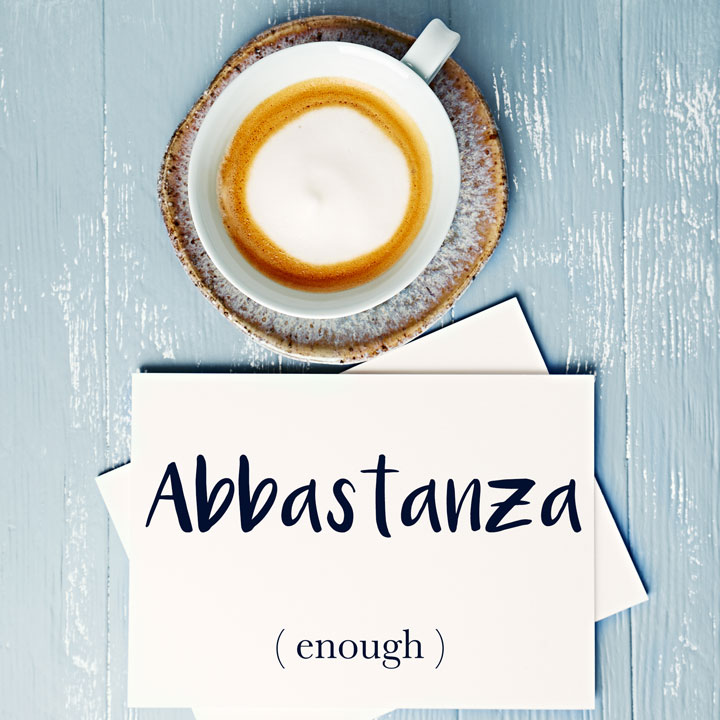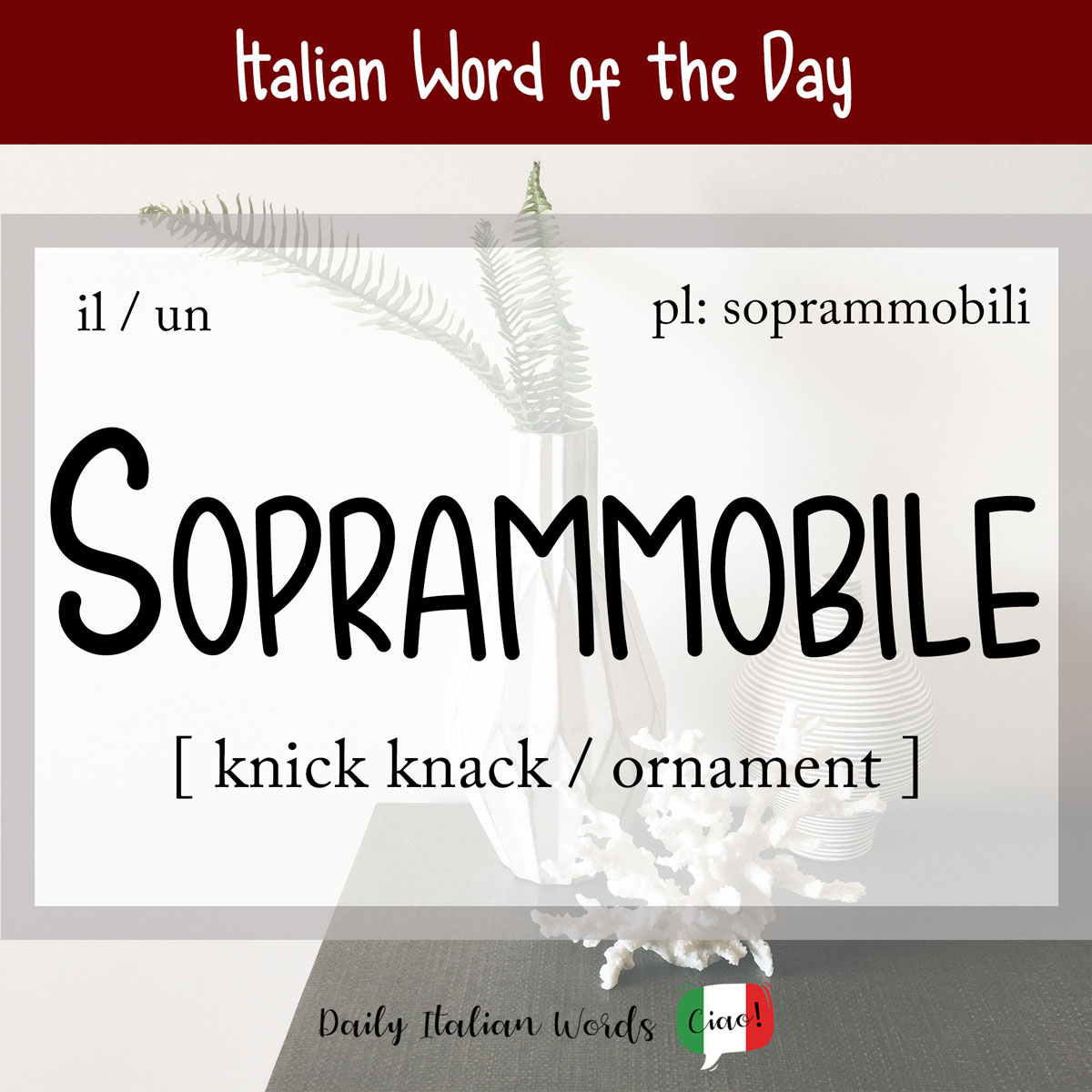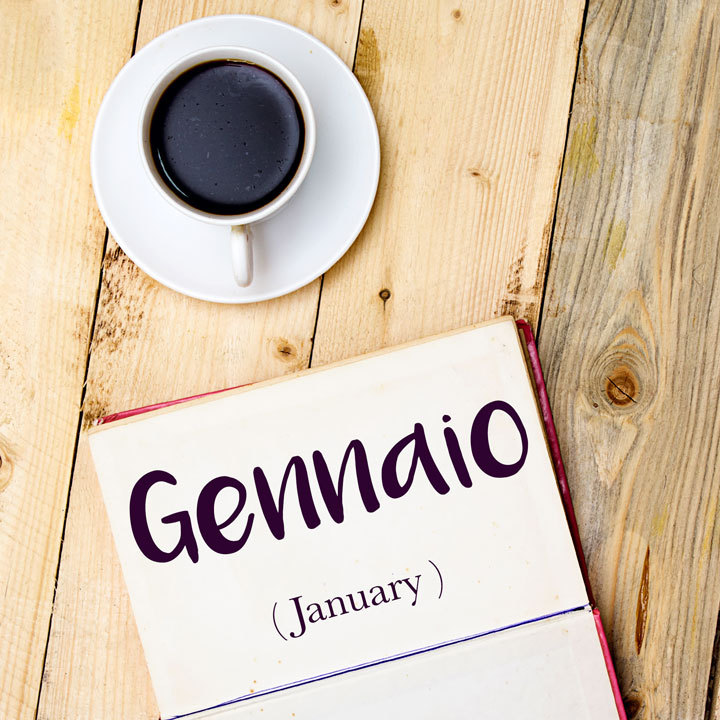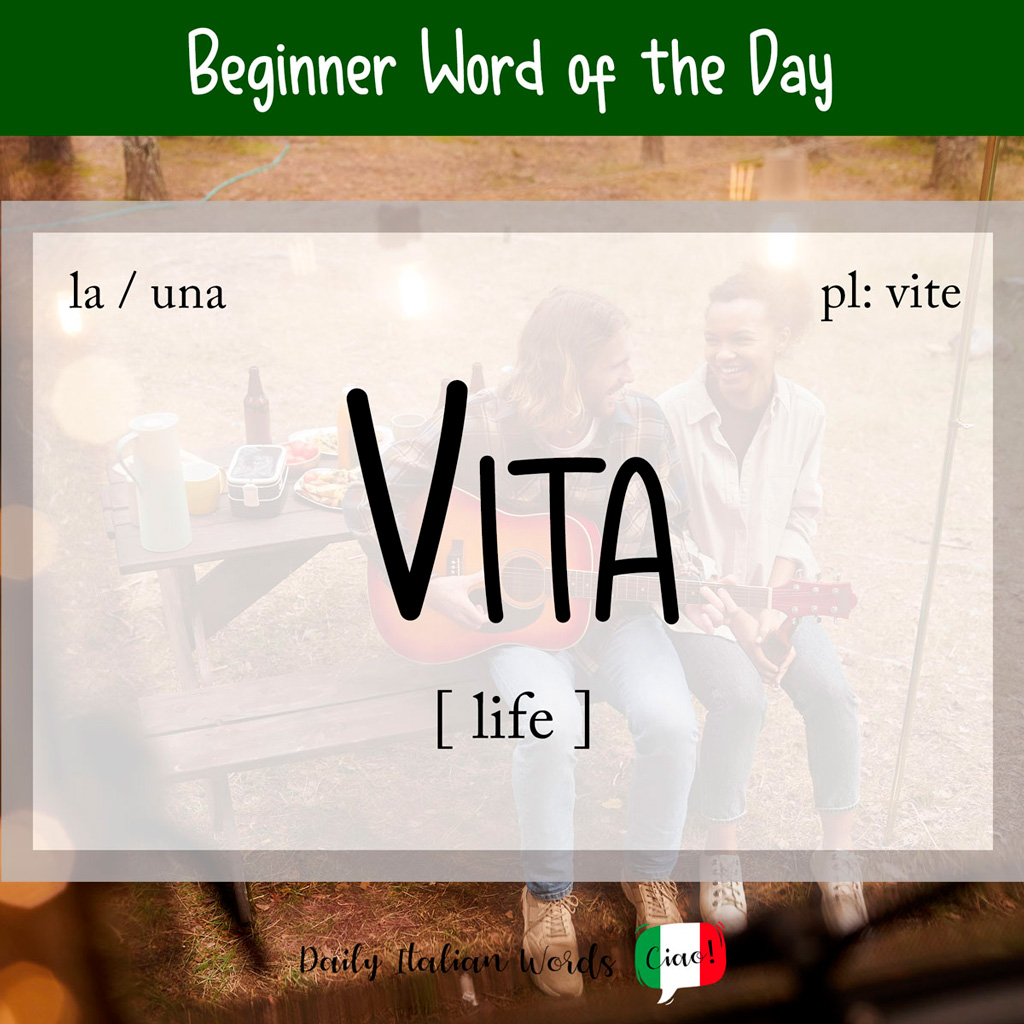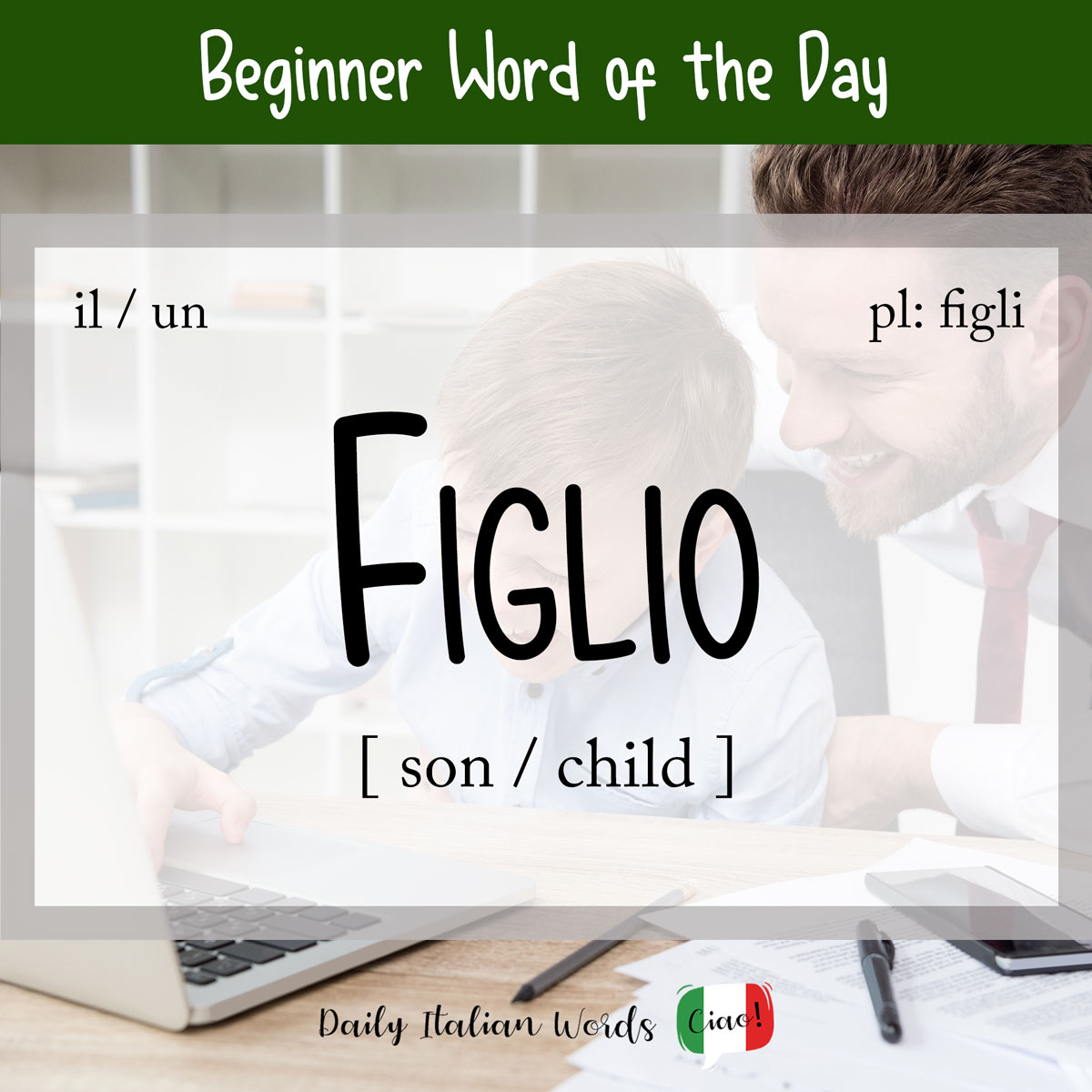Italian Word of the Day: Abbastanza (enough)
A handy word you will find yourself using all the time in Italian is abbastanza. It comes from the ancient form a (to) + bastanza (an antiquated derivative of bastare = to suffice). The doubling of the letter b can be attributed to a linguistic phenomenon called syntactic gemination. There are two predominant translations for …

